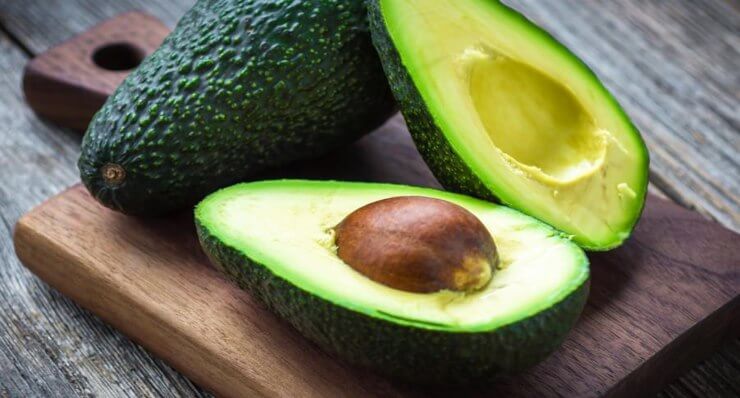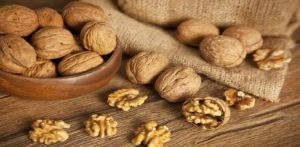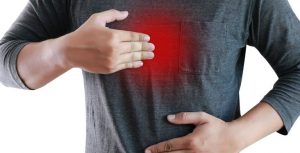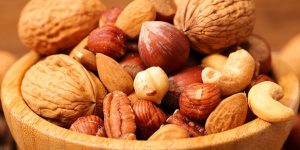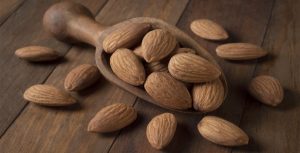The short answer is, yes. Since avocados are very high in fat they may trigger heartburn in susceptible individuals.
According to the U.S. Department of Agriculture; One (150 gr) avocado contains 22 gr of fat. And, studies reveal that high fat intake can trigger acid reflux symptoms in people with gastroesophageal reflux disease, aka GERD [1, 2, 3].
Important to note that although avocados contain mostly healthy (unsaturated) fats, they can still trigger heartburn.
In this article, we’ll talk about avocados’ potential heartburn-triggering effect!
Heartburn and Avocados
Science confirms that avocados can help improve many aspects of human health with their rich nutrient content [4, 5, 6, 7]. So hearing that avocados can potentially cause heartburn may come as a surprise to many people.
In fact, many foods that we consider healthy can trigger heartburn in people with acid reflux. Tomatoes, garlic, onion, egg yolk, lemon and walnuts are some of them.
Nevertheless, before labelling avocados as a heartburn trigger, we should know a couple of things:
- Yes, avocados may induce heartburn; however, this should be true only if you overeat them or consume them with other fatty foods. Because, in both circumstances, the amount of fat entering your stomach tends to be high. The same thing applies to nuts. When eaten in excess, nuts may induce heartburn because most nuts are very high in fat.
It is also important to note that everyone has different food triggers and everyone is not triggered to the same degree. “The foods that trigger heartburn are different for everyone,“ said Dr Kyle Staller, a gastroenterologist at Harvard-affiliated Massachusetts General Hospital [8].
So it should be more accurate to say that avocados may cause heartburn in “some” people with acid reflux.
Bottom line: If you eat avocados in small amounts, it shouldn’t provoke your acid reflux symptoms. However, if you overeat them, avocados may give you heartburn as they are rather fatty.
How much avocado is too much for acid reflux patients is unknown. Nevertheless, eating one whole avocado at a time might induce acid reflux symptoms. So consider eating in smaller amounts, such as 1/3 or 1/2 an avocado and see how your stomach reacts.
Below, we’ll explore how fat intake can trigger acid reflux symptoms. This will in turn help us comprehend how avocados — which are packed with fat — may lead to heartburn.
Firstly though, let’s briefly define acid reflux disease.
What is Acid Reflux?
Acid reflux happens when the Lower Esophageal Sphincter (LES) — a bundle of muscles located at the low end of the food pipe (the esophagus) — relaxes at the wrong time [9, 10].
Normally, the LES stays open approximately for 6 seconds after swallowing, then closes tightly to prevent stomach contents from moving upwards [11].
However, the LES sometimes malfunctions and doesn’t close properly. When this happens, stomach acid can flow back up into the food pipe, causing acid reflux symptoms, such as heartburn.
Everyone can experience heartburn at some point in life and it is totally normal. Yet, some people experience the symptoms constantly [12].
According to the Cleveland Clinic: Having heartburn more than twice a week over a period of several weeks may indicate GERD (Gastroesophageal Reflux Disease or Chronic Acid Reflux).
Diet and Acid Reflux
Stress, smoking, drinking alcohol, and certain medications can relax LES muscle or prevent it from closing properly, thus, increasing the risk of heartburn [13, 14, 15, 16].
Additionally, many food items are known to relax the lower esophageal sphincter (LES), leading to heartburn [17, 18].
In general; acidic foods, spicy foods, caffeine and fatty foods are the common heartburn triggers.
As mentioned earlier; since avocados are very high in fat, they may induce heartburn.
We will now explain how fat intake affects acid reflux symptoms. That will help us understand how avocados may cause heartburn in those who are prone to it.
How Do Fats Trigger Heartburn?
In two ways, high-fat foods (including foods that contain healthy fats, such as nuts and avocados) can bring about acid reflux symptoms.
Fat Stays in the Stomach Longer
Fat stays in the stomach longer than other macronutrients, such as protein and carbohydrates. This delays the emptying of the stomach and thus causes more acid to be produced in the stomach [19, 20, 21].
The more acid there is in the stomach, the more chance stomach acid can escape up into the esophagus, causing heartburn. This is especially true if your LES tends to malfunction.
As mentioned above, the LES is a valve-like muscle that prevents stomach acid from going back up the food pipe.
If you consume avocados — which are high in fat — together with other fatty foods, as a response your stomach can produce excess acid and that can increase the risk of heartburn.
Fat Triggers the Release of CCK Hormone
CCK stands for cholecystokinin. Basically, this is a hormone secreted by the upper small intestine into the bloodstream following the ingestion of protein and fat [22, 23, 24, 25].
Consumption of fatty acids triggers the release of cholecystokinin (CCK).
Studies suggest that the CCK hormone can potentially cause the lower esophageal sphincter (LES) to relax [26, 27, 28, 29].
When LES muscle relaxes when it shouldn’t, stomach acid can travel up into the food pipe and cause a burning sensation in the chest.
Ways to Consume Avocados Without Heartburn
If you realised that eating fat-rich avocados give you heartburn, the below-given tips may help you consume these nutritious fruits without getting heartburn.
- Avoid consuming avocados together with other fatty foods and after a big meal.
- If you eat one or more avocados at one sitting, lower the amount. This, in turn, can lower the amount of fat you ingest, hence, lowering the risk of heartburn.
- Take a walk after eating avocados and other fatty foods. This is because walking can speed up digestion and thus may prevent acid reflux.
- Try not to lie down right after whatever you eat. Standing or sitting can help you avoid heartburn as gravity helps keep the stomach contents where they belong.
Conclusion
To our knowledge, there is no study that has examined the potential impact of avocado consumption on acid reflux patients.
However, studies show that dietary fat can trigger heartburn in acid reflux sufferers. Avocados are one of the fattiest fruits. So, they may give you heartburn, especially if you eat too many of them.
In fact, scientists are still trying to understand which types of fat may aggravate GERD symptoms.
It appears that even “good” fats that exist in healthy foods such as avocados, nuts or egg yolks may trigger or worsen acid reflux symptoms.
It bears repeating; everyone has different food triggers. So, the fact that avocados are fatty doesn’t mean that you will certainly experience heartburn after eating avocados. You may consume avocados with no sign of acid reflux, especially if you eat them in moderation.
Note that if you experience heartburn more than 2 days a week, for several months, you may have developed GERD. If this is the case, we strongly recommend you work with your doctor.
